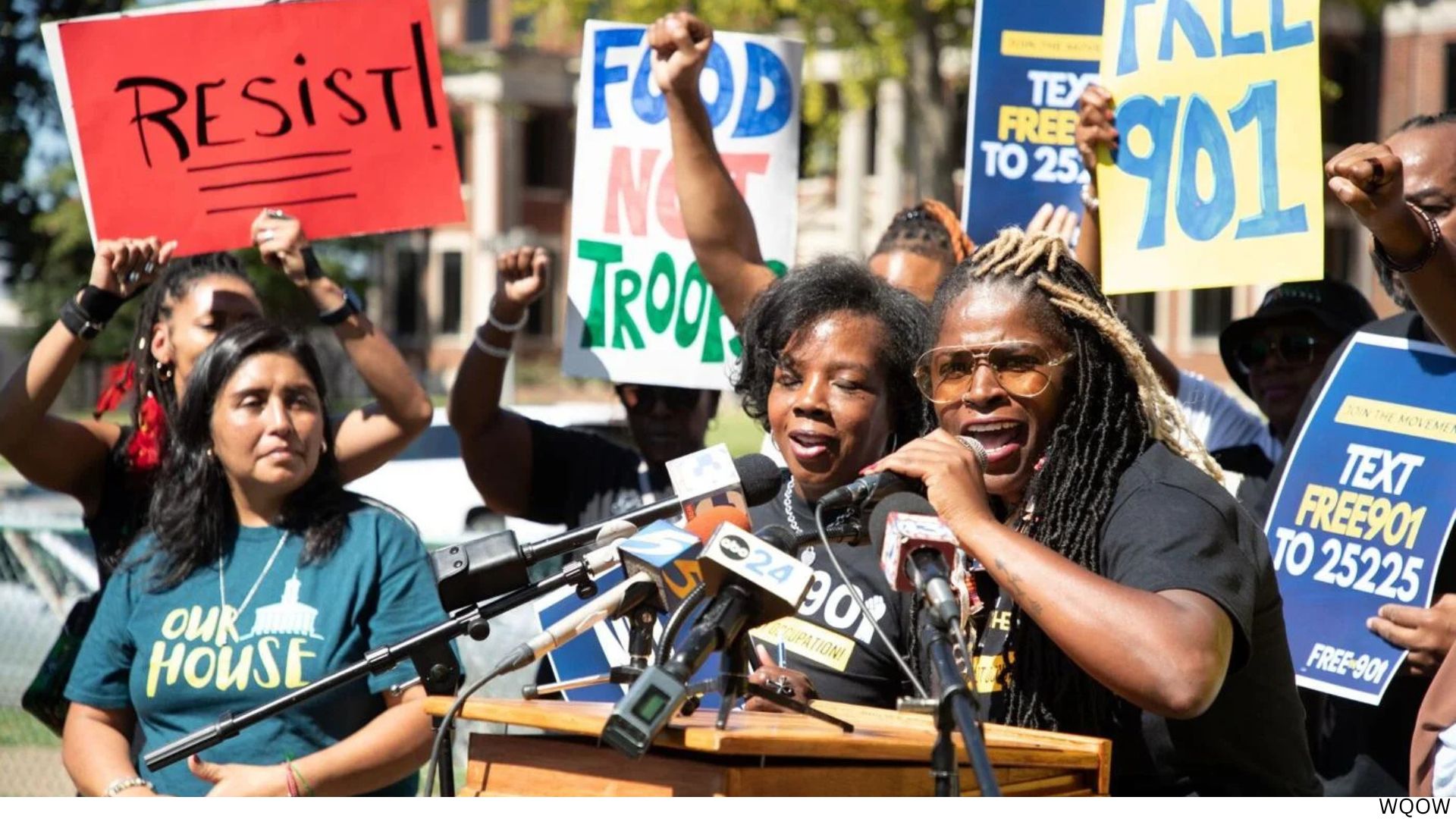MEMPHIS, TN — Federal authorities are ramping up arrests and law enforcement presence in Tennessee’s second-most populous city, as part of President Donald Trump’s broader initiative to combat crime in major cities led by Democratic officials.
The Trump administration's approach includes deploying federal officers and National Guard troops to what the president has described as “besieged” urban areas. The goal, according to administration officials, is to reclaim control of neighborhoods that have experienced spikes in violent crime. The cities targeted for this operation include Washington, DC, Los Angeles, Chicago, Portland — and now Memphis.
President Trump suggested earlier this week that these cities could serve as a “training ground” for the U.S. military, emphasizing a law-and-order stance ahead of the upcoming election season. The move has drawn sharp criticism from local officials who see the federal surge as an overreach and an attempt to federalize local law enforcement.
In Memphis, U.S. Attorney General Pam Bondi announced on Tuesday that “219 officers were special deputized and our Joint Operations Center is up and running.” By the following morning, Bondi reported that the newly formed Memphis Safe Task Force had already made 53 arrests and seized 20 illegal firearms.
Bondi visited Memphis on Wednesday alongside U.S. Defense Secretary Pete Hegseth to inspect the operation and meet with local and federal officers involved. Hegseth framed the federal intervention as essential support for Memphis law enforcement. "It’s the federal government’s job to help liberate law enforcement in Memphis," he said during a press briefing. “They must be freed up to go out and provide safety and freedom to the citizens.”
Early Morning Raids and Visible Federal Presence
Early Wednesday, outside a county jail east of central Memphis, federal and state law enforcement officers began organizing before sunrise. Some wore tactical gear and bulletproof vests marked with FBI, U.S. Marshals Service, and the Tennessee Bureau of Investigation (TBI) insignia.
Nearby fields and parking lots were filled with over 100 official vehicles, including mobile command units, RVs, and military-style trucks. A CNN news crew on the scene also reported seeing uniformed military personnel standing near Humvees, operating from what appeared to be a temporary command center.
The arrival of the National Guard had been anticipated for weeks following President Trump’s public statement indicating that troops would be deployed to Memphis. CNN has contacted the National Guard for an exact timeline regarding their deployment, but as of yet, no official timeline has been released.
Pushback in Portland, Caution in Memphis
In Portland, Oregon — another city where federal agents have been deployed — state leaders continue to resist what they describe as federal overreach. The Oregon Governor’s Office and local officials have filed a federal lawsuit arguing that the deployment is based on “old and faulty intelligence.” Governor Kate Brown has exchanged heated messages with Trump aides, criticizing the administration for deploying National Guard troops without proper coordination.
Despite the president’s claims that National Guard members are “now in place” in Portland, confirmation from local authorities remains elusive. Portland’s mayor’s office, police department, and the Oregon Military Department have yet to provide a clear status update.
In contrast, while Memphis officials have not openly challenged the deployment, reactions remain mixed. City leaders have acknowledged Memphis's high crime rates in recent years — including spikes in homicides, aggravated assaults, and carjackings — but they also point to recent progress. Some crime categories have seen a modest decline in 2025, which has prompted some local politicians to question whether a full-scale federal intervention was warranted.
Strategy of “Saturation”
According to Trump administration officials, the Memphis operation is designed to replicate what they claim was a successful strategy in Washington, DC, where more than 2,000 National Guard troops were deployed earlier this year.
The strategy includes “large-scale saturation of besieged neighborhoods with law enforcement personnel,” along with “strict enforcement of applicable quality-of-life, nuisance, and public-safety laws.” Federal officials believe that the sheer presence of law enforcement will deter crime and help communities regain a sense of order and safety.
Critics argue the approach is overly militarized and risks escalating tensions in vulnerable communities. Civil rights groups have raised alarms about the potential for over-policing, racial profiling, and infringement on civil liberties, especially in cities with predominantly Black populations like Memphis.
Political Overtones
Many see the Memphis operation as part of a broader political strategy by President Trump, who has leaned heavily into law-and-order messaging ahead of the 2026 midterm elections. The presence of federal officers and military troops in Democratic-run cities may also serve to contrast the administration’s approach with that of local officials, some of whom have championed police reform and community-based alternatives to traditional law enforcement.
Still, for some residents of Memphis, the increased presence of law enforcement offers a sense of relief. “We need help out here,” said a North Memphis resident who asked to remain anonymous. “Every night you hear gunshots. If the feds can stop it, then fine by me.”
For now, federal authorities say their presence in Memphis will continue “as long as necessary” to bring crime rates down and restore stability to troubled neighborhoods. The long-term impact — both in terms of crime reduction and public trust — remains to be seen.
%20(4).png)




.jpg)
.png)
.png)
.png)
